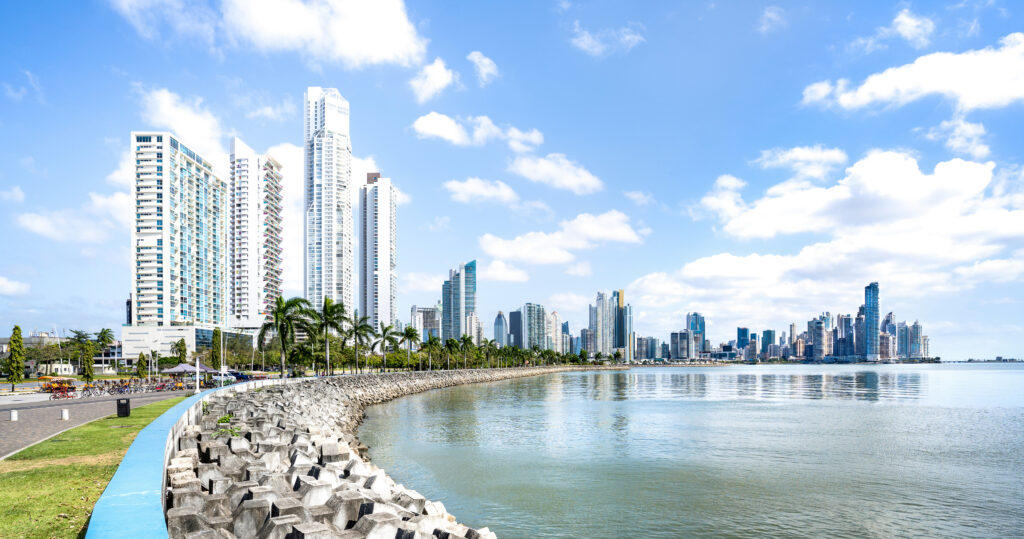How to Open an Offshore Company in Panama
Panama has long been called the “Switzerland of the Americas” — but if you’re considering where to open an offshore company, it’s fair to say that the narrowest country in Central America is now more favorable than Switzerland. The process to open an offshore company in Panama is notoriously fast and easy. However, that doesn’t mean you won’t face any hurdles at all. Forewarned is forearmed, so let’s get you off to an informed start on how to open an offshore company in Panama!

What Offshore Structures Does Panama Offer?
While Panama offers several business structures (including Sociedad Anónima, Sociedad de Responsabilidad Limitada or LLC, and Private Interest Foundation), in practice, offshore companies in Panama are nearly always International Business Companies (IBCs).
This company structure protects shareholders against liabilities by allowing them to act independently of them in civil and business transactions. It has a flexible ownership structure, but requires a minimum of three board members to operate. Because IBCs have by far the most favorable conditions for offshore investors, we’ll focus exclusively on them here.
Why Open an Offshore Company in Panama?
Panama is home to over 40,000 registered offshore companies today, and when you learn about the key benefits, it’s immediately clear why:
- IBCs are exempt from paying income and capital gains taxes from revenue generated outside Panama.
- Panama has exceptionally strong privacy and banking secrecy laws. That means your name as a shareholder or director won’t be publicly disclosed, making an IBC in Panama an excellent choice for privacy enthusiasts. IBC can also issue (anonymous) bearer shares.
- International Business Companies offer limited liability protection to shareholders.
- The process of opening an offshore company in Panama is fast and easy compared to many other offshore destinations.
- Panama doesn’t have minimum capital requirements, and maintenance fees are low. You won’t have to file yearly reports or accounts in Panama.
What’s more, Panama is a highly-developed country with a strong financial and legal infrastructure. Its strategic location makes Panama an excellent place to start an international business. The country is crypto-friendly, with no taxes on crypto transactions, and it strongly encourages fintech investments.

That Sounds Great. What’s the Catch?
Good question. While there are plenty of reasons to open an offshore company in Panama, you wouldn’t be doing your job if you didn’t also consider the cons.
Some of the main disadvantages apply to offshore companies in most jurisdictions. With an offshore company in Panama, you’ll have to comply with two sets of rules simultaneously — Panamanian law and your local laws. If you’re a US citizen or resident, you’ll still have to pay taxes on your IBC’s income in the United States. Plus, Panama is a Spanish-speaking country, so if you’re not proficient, the language barrier can make opening and maintaining your IBC more complex.
You’ve also got some Panama-specific cons to think about:
- The financial sector is still reeling from the Panama Papers scandal — and this damaged reputation could trickle down if you open an offshore company in the country.
- In part because of this, entrepreneurs should take the possibility that Panama could pass new legislation that would make the financial environment less exciting for offshore investors seriously.
- While opening an offshore company in Panama is quite straightforward, the associated costs are higher than for some other offshore jurisdictions.
If these disadvantages don’t strike you as obstacles after considering all your options, you’re probably ready to get to the meat of the question — how do you actually open an offshore company in Panama?
How to Open an Offshore Company in Panama
Ready to get the ball rolling? Even though opening an offshore company in Panama is relatively straightforward, it’ll still be a process. This checklist will help you make sense of it.
1. Preliminary Planning
Familiarize yourself with Panamanian laws as they apply to offshore companies, lay out your objectives, and choose a company structure. International Business Companies are a very popular choice for offshore businesses, but you do have other options, too, including LLCs and corporations — which can act both inside and outside of Panama.
2. Choose a Resident Agent
Offshore companies need a resident agent (a lawyer or law firm) to act as a liaison between them and Panamanian authorities. If you’re not already familiar with the country, it is best to ask people in your circle for referrals, or to follow online research up with thorough verification. Unless you’re fluent in Spanish, make sure that your chosen resident agent has good English skills!
Besides your agent, you’ll also need a Panamanian accountant — and, if you think you’ll need the services, a business consultant.
3. Pick a Company Name
Your company name has to be unique and available within the Public Registry of Panama. You can do this online — and unless you’re suffering from creative block, it will be the easiest part of the process.
4. Gather and Prepare Relevant Documents
To open an offshore company in Panama, you’ll need:
- Articles of Incorporation (estatutos) — signed, notarized, and in Spanish
- Proof of identity and address for both shareholders and directors
- Your Social Security Number (SSN) or other tax identification number

5. Enroll with the Public Registry of Panama
You’ve done a lot of the leg work. Now for the exciting part. Submit your notarized Articles of Incorporation to the Public Registry of Panama and pay the incorporation fees. Now is also the time to register with the Panamanian Tax Authority, which will give you the Tax Identification Number your offshore company needs to operate.
6. Shop for a Bank
Congratulations — your offshore company now officially exists, and it’s time to open a bank account. Do your research, and make sure you are aware of each candidate’s rates and requirements, before you choose a banking partner.
You’re now in operation, but you’ll still need to maintain a registered office in the country and make sure you are always compliant with local regulations. Complying with US regulations is just as important, so work with a CPA or tax expert to ensure you’re fully informed and able to maximize the benefits you get from your offshore company.
A Final Word on Offshore Company Creation in LATAM
Did that look at how to open an offshore company in Panama leave you feeling like anyone can do it? Keep in mind that practice is always harder than theory, and developing solid working relationships with local partners will make the process significantly easier.
Because Panama remains a popular offshore destination, resident agents, lawyers, accountants, and tax experts who are fluent in English are not difficult to find. These partners are crucial to making your Panamanian venture a success.



Comments are closed